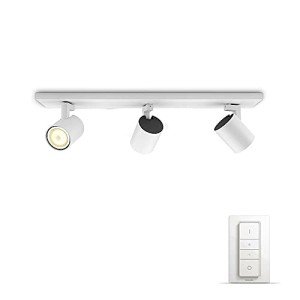Ten Startups That Are Set To Change The Industrial Lamps UK Industry For The Better
Industrial Lamps in the UK: Illuminating Industries and Workspaces
In an age where effective lighting options play a critical role in enhancing performance and security in various industrial settings, industrial lamps have emerged as important tools for factories, storage facilities, workshops, and more. The UK's market for industrial lighting is quickly developing, driven by advancements in technology, a growing focus on energy effectiveness, and stringent safety guidelines. This article checks out the different types of industrial lamps available in the UK, their applications, and the factors to consider that need to be made when choosing the proper lighting options for industrial environments.
Understanding Industrial Lamps
Industrial lamps are created specifically for use in a range of industrial settings. Buy Lighting UK provide the needed illumination while likewise considering the distinct difficulties presented by such environments, consisting of dust, wetness, high ceilings, and variable temperature levels. Industrial lamps come in different kinds, consisting of LED, fluorescent, and metal halide lighting, each with its own set of characteristics and benefits.
Types of Industrial Lamps
LED Industrial Lamps:
- Description: LED (Light Emitting Diode) industrial lamps are energy-efficient, long-lasting, and offer outstanding illumination.
- Advantages:
- Energy performance (up to 80% less energy consumption)
- Long life expectancy (up to 50,000 hours)
- Low heat emission
- Instantaneous brightness with no flickering
- Applications: Factories, storage facilities, and building and construction websites.
Fluorescent Industrial Lamps:
- Description: These lamps produce light through the excitation of gas, commonly used in environments needing uniform lighting.
- Advantages:
- Good color rendering
- Cost-effective
- Various shapes and sizes
- Applications: Workshops, garages, and assembly lines.
Metal Halide Industrial Lamps:
- Description: This kind of gas discharge lamp produces a bright, white light and is typically used in large areas.
- Advantages:
- High intensity and brightness
- Exceptional for sports venues, parking area, and large industrial centers
- Applications: Warehouses, filling docks, and outdoor areas.
Contrast Table of Different Types of Industrial Lamps
Lamp Type
Energy Efficiency
Lifespan
Brightness
Application Areas
LED Industrial Lamps
Up to 80%
Up to 50,000 hours
Extremely High
Factories, Construction Sites
Fluorescent
Moderate
7,000 – 15,000 hours
Moderate to High
Workshops, Garages
Metal Halide
Moderate
15,000-20,000 hours
High
Storage Facilities, Outdoor Areas
Selecting Industrial Lamps
When selecting industrial lamps, a number of aspects must be taken into account. These include:
Type of Application: Different locations have varying lighting needs. For example, high-precision jobs might need brighter, more concentrated lighting compared to general work space illumination.
Energy Efficiency: With increasing energy expenses and environmental concerns, picking lamps with high energy efficiency can lead to significant cost savings in time.
Life expectancy: Longer-lasting lamps reduce upkeep costs and downtime, making them more effective in hectic industrial settings.
Safety Standards: Compliance with safety guidelines is vital. Industrial lamps should be designed to hold up against harsh conditions, consisting of wetness, dust, and impacts.
Cost: While upfront expenses matter, the long-term savings accomplished through energy-efficient and long-lasting lamps ought to likewise be taken into consideration.
Advantages of Appropriate Industrial Lighting
Boosted Safety: Proper illumination lowers the danger of accidents and injuries in industrial environments.
Increased Productivity: Adequate lighting promotes much better visibility, aiding in the effectiveness of workers.
Expense Savings: Energy-efficient lamps lead to lower electrical power bills and less regular replacements.
Enhanced Quality Control: Good lighting enables better inspection processes, eventually enhancing product quality.
Regularly Asked Questions (FAQs)
Q1. How do I determine the ideal kind of industrial lamp for my center?A1. Examine Buy Lighting UK and conditions of your facility. Think about factors such as the tasks being carried out, the size of the space, and any regulatory requirements.
Q2. Are LED lights worth the financial investment in an industrial setting?A2. Yes, LED lights use substantial long-lasting savings due to lower energy consumption and longer life-spans, making them a cost-efficient choice in the long run.
Q3. Can I set up industrial lamps myself?A3. While some people may have the abilities to install lamps, it is typically suggested to employ a certified electrician to guarantee compliance with safety requirements and local policies.
Q4. What maintenance is required for industrial lamps?A4. Routine inspections for damage, cleaning of lights, and timely replacement of malfunctioning lamps are vital to maintain optimum efficiency.
Q5. What are the most recent trends in industrial lighting technology?A5. Advances in smart lighting systems, consisting of IoT (Internet of Things) combination and sophisticated energy management services, are at the leading edge of industrial lighting innovation.
The ideal industrial lamps are vital to making sure security, productivity, and cost effectiveness in numerous industrial settings. The UK market uses a variety of lighting services, from LED lamps to fluorescent and metal halide alternatives, each suitable for different applications. By understanding the features and benefits of these lighting types and taking crucial considerations into account, companies can make informed decisions that will brighten their work spaces efficiently while optimizing performance and conserving expenses. Investing in the right industrial lighting not just improves general atmosphere however also promotes a much safer and more productive workplace.
